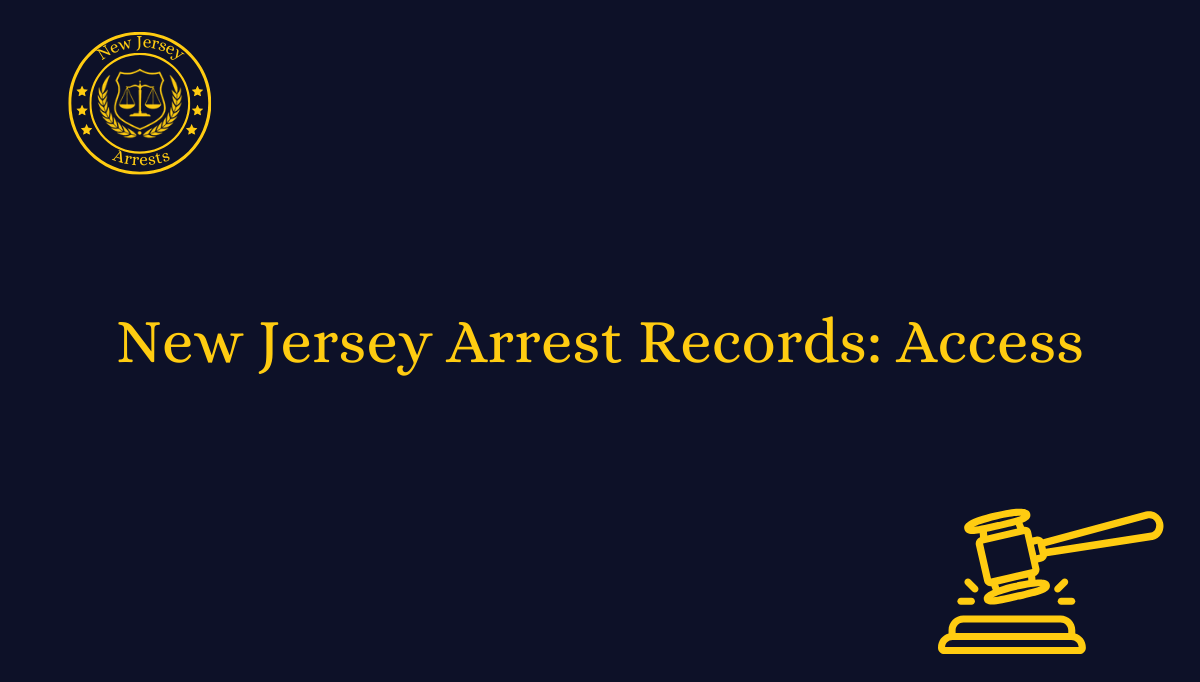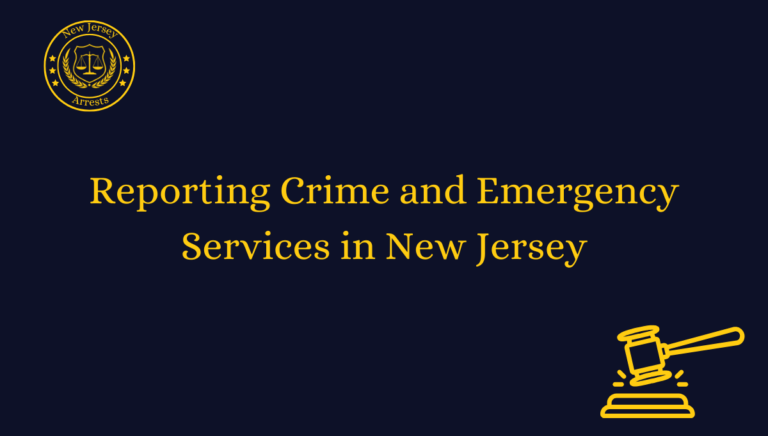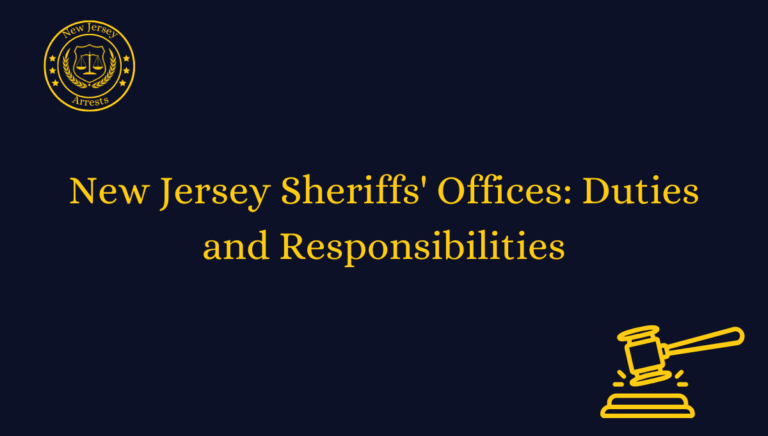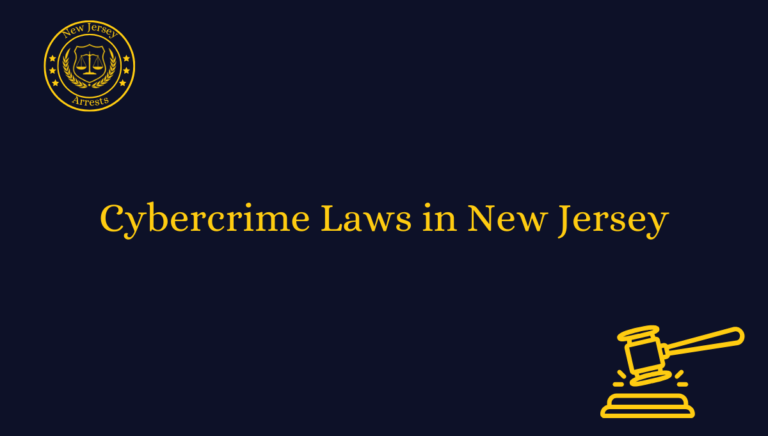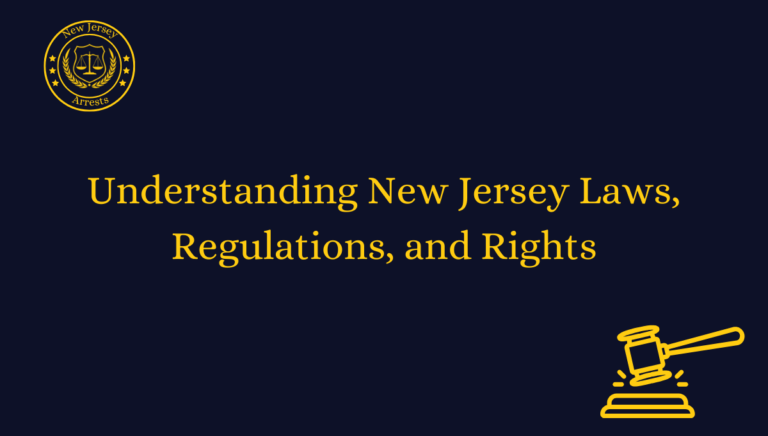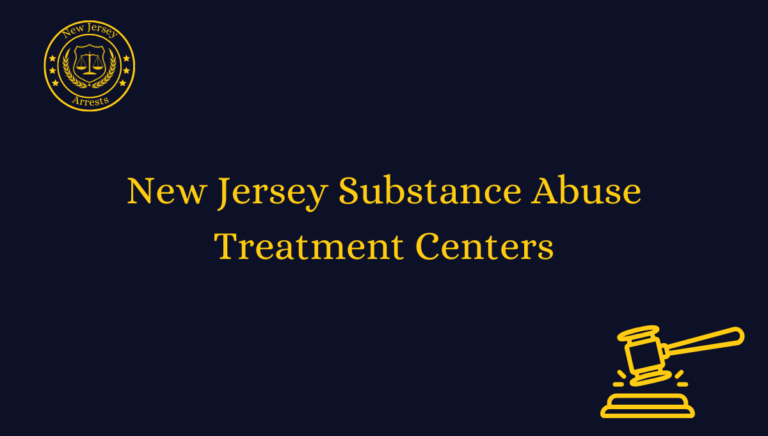New Jersey Arrest Records: Access
Accessing arrest records is a fundamental aspect of transparency and accountability within the criminal justice system. In New Jersey, like in many other states, these records are considered public information, allowing citizens to obtain crucial details about an individual’s encounters with law enforcement. This article delves into the intricacies of accessing New Jersey arrest records, exploring the legal framework, methods of access, benefits, challenges, and future trends in this area.
New Jersey Arrest Records
Arrest records serve as documented evidence of an individual’s interactions with law enforcement agencies. They typically contain details such as the date and location of the arrest, the charges filed, and any dispositions resulting from the arrest. Access to these records is vital for various purposes, including background checks, employment screenings, and ensuring personal safety.
Legal Framework for Accessing Arrest Records in New Jersey
In New Jersey, the Open Public Records Act (OPRA) governs access to public records, including arrest records. This legislation ensures that the public has the right to access government records, with certain exceptions for privacy and security reasons. Individuals can request arrest records from law enforcement agencies or access them through online databases maintained by the state.
Methods of Accessing New Jersey Arrest Records
There are several avenues for accessing arrest records in New Jersey. One option is to utilize online databases and portals provided by government agencies, which offer convenient access to a wealth of information. Alternatively, individuals can submit requests directly to law enforcement agencies, either in person or by mail. Additionally, third-party services may offer assistance in obtaining arrest records for a fee.
Benefits of Accessing Arrest Records
Accessing arrest records can have numerous benefits for individuals and organizations. Employers often use these records to conduct background checks on prospective employees, helping to ensure a safe and secure work environment. Similarly, landlords may use arrest records as part of the tenant screening process to assess the reliability of potential renters. Additionally, individuals may use arrest records to protect themselves and their families by identifying potential threats in their communities.
Challenges in Accessing Arrest Records
While access to arrest records is essential, there are also challenges associated with obtaining and using this information. Privacy concerns arise regarding the dissemination of sensitive personal information, leading to debates over the appropriate balance between transparency and individual privacy rights. Moreover, inaccuracies in arrest records can have serious consequences for individuals, resulting in unwarranted stigma and discrimination.
Tips for Conducting a Successful Search
To maximize the effectiveness of a search for arrest records, it is essential to follow certain guidelines. Knowing where to search, whether through official government channels or reputable third-party services, can streamline the process and ensure access to accurate information. Additionally, understanding the information provided in arrest records and verifying its accuracy are critical steps in conducting a thorough search.
Understanding Sealed and Expunged Records
In some cases, arrest records may be sealed or expunged, limiting access to this information. Sealed records are typically inaccessible to the public, while expunged records are permanently removed from official records. Understanding the implications of sealed and expunged records is essential for individuals seeking to access arrest records for various purposes.
Implications of Arrest Records on Individuals
Arrest records can have significant implications for individuals, affecting various aspects of their lives. Those with a history of arrests may face stigma and discrimination in employment, housing, and other areas, hindering their opportunities for rehabilitation and reintegration into society. Addressing these challenges requires a concerted effort to promote fairness and equity in the treatment of individuals with arrest records.
Future Trends in Accessing Arrest Records
Advancements in technology and changes in legislation are likely to shape the future of accessing arrest records in New Jersey. Innovations such as artificial intelligence and machine learning may improve the accuracy and efficiency of record searches, while evolving legal standards may further define the rights and responsibilities surrounding access to this information.
FAQS
What are New Jersey Arrest Records?
New Jersey Arrest Records are official documents that contain information about individuals who have been arrested in the state of New Jersey. These records include details such as the person’s name, date of arrest, charges filed against them, and other relevant information.
How can I access New Jersey Arrest Records?
To access New Jersey Arrest Records, you can visit the official website of the New Jersey State Police or the New Jersey Department of Corrections. These websites provide online portals where you can search for and request access to arrest records. You may need to provide certain details such as the person’s name, date of birth, and any other identifying information.
Are New Jersey Arrest Records public information?
Yes, New Jersey Arrest Records are considered public information. This means that anyone can access these records as long as they follow the proper procedures and provide the required information. However, certain sensitive information may be redacted or withheld to protect the privacy of individuals involved.
What can I use New Jersey Arrest Records for?
New Jersey Arrest Records can be used for various purposes, such as background checks, employment screenings, and legal matters. They provide valuable information about a person’s criminal history and can help individuals make informed decisions or ensure their safety when necessary.
How accurate and up-to-date are New Jersey Arrest Records?
New Jersey Arrest Records strives to be as accurate and up-to-date as possible. However, it’s important to note that there may be delays in updating records due to administrative processes or ongoing legal proceedings. It’s always recommended to cross-reference information with other reliable sources and consult with legal professionals if needed.
Can I request the removal or correction of New Jersey Arrest Records?
Yes, you have the right to request the removal or correction of New Jersey Arrest Records if you believe there are errors or inaccuracies. You can contact the respective agencies responsible for maintaining these records and follow their specific procedures for requesting corrections or removals.

